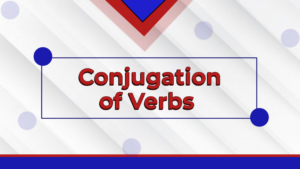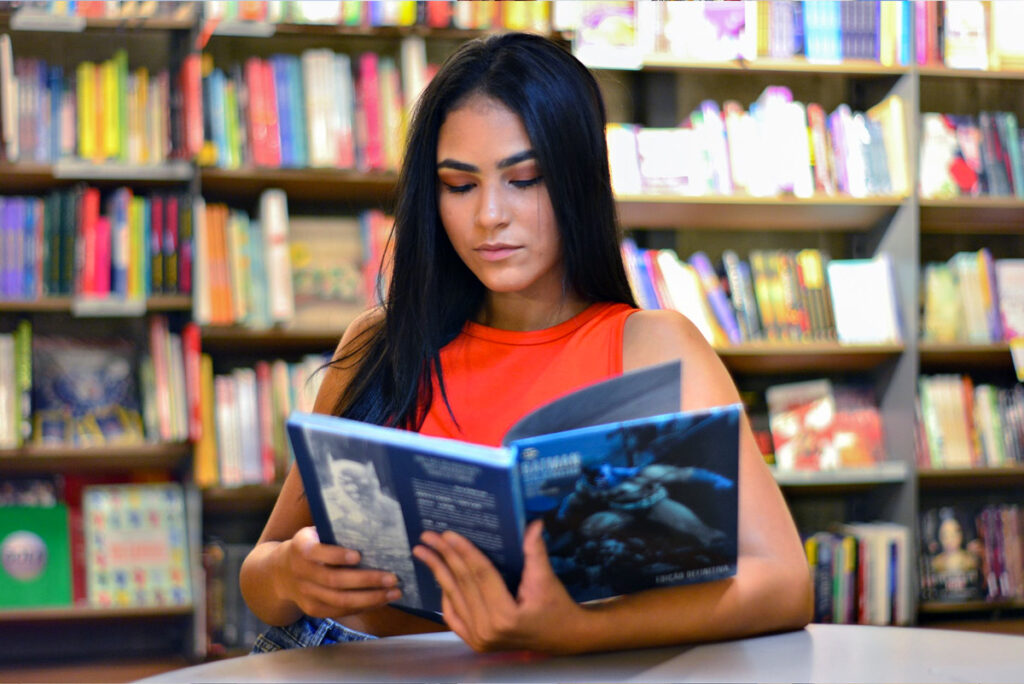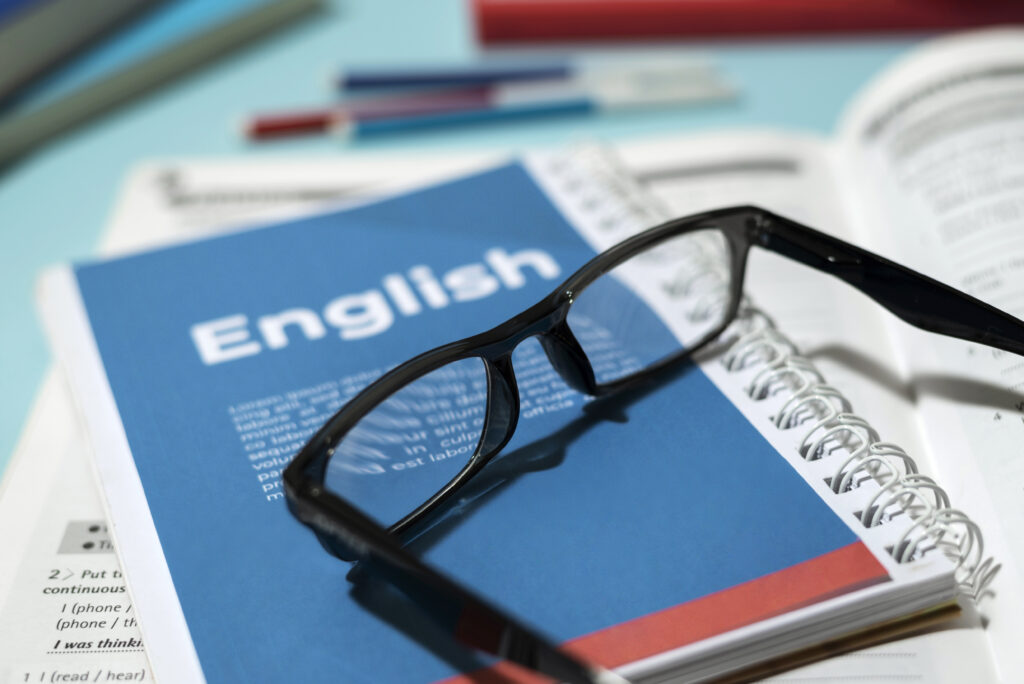Est. reading time: 5 minutes

English has one of the easiest verb conjugation rules compared to other languages. Verbs are words that portray action. However, they metamorphose from their roots to form versions that suit the tense, number, person, etc., acting as the subject in a sentence. This change is called conjugation.
Meaning of Conjugation of Verbs
Conjugation of verbs is simply a change from the root form of verbs. It is important to understand how to conjugate verbs to craft better sentences. Conjugation provides context to our sentences and enables readers to understand the circumstances surrounding the action in the sentence. These changes in the root verb could be in spelling or the addition of helping verbs. Below are various conjugations of the verb “go”:
- I go to the beach on Saturdays.
- Kim goes to the beach on Saturdays.
- The family will go to the beach on Saturday.
- Tom and Leah are going to the beach on Saturday.
- John went to the beach on Saturday.
- Mary is going to the beach on Saturday.
- Holly was going to the beach.
- They have gone to the beach already.
- They had gone to the beach last Saturday.
- He has been going to the beach on Saturdays.
- We have been going to the beach on Saturdays
Here, we can see the different forms of the root verb, “go”. Each form gives context to the sentences. Let’s take a closer look at the conjugation of verbs.
Conjugation Based on Tenses
Tenses indicate the time in which an action was carried out. Conjugation varies with the twelve tenses in the English language. While it follows a particular pattern in regular verbs, irregular verbs can be quite different, especially when conjugating in the past tense. Examples:
1. Simple present tense
Makes use of the root verb in its singular or plural form.
| Regular verb (Enjoy) | Irregular verb (Eat) |
| I enjoy reading thrillers. | I eat rice. |
| You enjoy reading thrillers | You eat rice |
| Tom enjoys reading thrillers | Tom eats rice |
| They enjoy reading thrillers | They eat rice |
2. Present continuous tense
Makes use of am/is/are + root verb + -ing.
| Regular Verb (Flip) | Irregular Verb (Come) |
| I am flipping the pancakes. | I am coming. |
| You are flipping the pancakes. | You are coming. |
| Leah is flipping the pancakes. | Leah is coming. |
| They are flipping the pancakes. | They are coming. |
3. Present perfect tense
Makes use of have/has + past participle.
| Regular Verb (Look) | Irregular Verb (Sleep) |
| I have looked around. | I have slept. |
| You have looked around. | You have slept. |
| Paul has looked around. | Paul has slept. |
| They have looked around. | They have slept. |
4. Present perfect continuous tense
Makes use of have/has + been + present participle.
| Regular Verb (Play) | Irregular Verb (Buy) |
| I have been playing chess. | I have been buying bread. |
| You have been playing chess. | You have been buying bread. |
| Mary has been playing chess. | Mary has been buying bread. |
| They have been playing chess. | They have been buying bread. |
5. Simple past tense
Makes use of root verb + -ed/-d for regular verbs, and a change in spelling for irregular verbs.
| Regular Verb (Dance) | Irregular Verb (Lose) |
| I danced last night. | I lost my pen. |
| You danced last night. | You lost your pen. |
| Brian danced last night. | Brian lost his pen. |
| They danced last night. | They lost their pen. |
6. Past continuous tense
Makes use of was/were + present participle.
| Regular Verb (Wash) | Irregular Verb (Run) |
| I was washing the dishes. | I was running towards the bus. |
| You were washing the dishes. | You were running towards the bus. |
| Mabel was washing the dishes. | Mabel was running towards the bus. |
| They were washing the dishes. | They were running towards the bus. |
7. Past perfect tense
Makes use of had + past participle.
| Regular Verb (Touch) | Irregular Verb (Catch) |
| I had touched her hair. | I had caught the butterfly. |
| You had touched her hair. | You had caught the butteefly. |
| Cole had touched her hair. | Cole had caught the butterfly. |
| They had touched her hair. | They had caught the butterfly. |
8. Past perfect continuous tense
Makes use of had + been + present participle.
| Regular Verb (Stay) | Irregular Verb (Cut) |
| I had been staying at grandma’s. | I had been cutting the vegetables. |
| You had been staying at grandma’s. | You had been cutting the vegetables. |
| Barbara had been staying at grandma’s. | Barbara had been cutting the vegetables. |
| They had been staying at grandma’s. | They had been cutting the vegetables. |
9. Simple future tense
Makes use of will + main verb.
| Regular Verb (Store) | Irregular Verb (Write) |
| I will store the cake in the freezer. | I will write the poem tonight. |
| You will store the cake in the freezer. | You will write the poem tonight. |
| Daniel will store the cake in the freezer. | Daniel will write the poem tonight. |
| They will store the cake in the freezer. | They will write the poem tonight. |
10. Future continuous tense
Makes use of will + be + present participle.
| Regular Verb (Complete) | Irregular Verb (Buy) |
| I will be completing my exams tomorrow. | I will be buying the groceries. |
| You will be completing your exams tomorrow. | You will be buying the groceries. |
| Cindy will be completing her exams tomorrow. | Cindy will be buying the groceries. |
| They will be completing their exams tomorrow. | They will be buying the groceries. |
11. Future perfect tense
Makes use of will + have + past participle.
| Regular Verb (Fix) | Irregular Verb (Drink) |
| I will have fixed the pipes. | I will have drank tea. |
| You will have fixed the pipes. | You will have drank tea. |
| Frank will have fixed the pipes. | Frank will have drank tea. |
| They will have fixed the pipes. | They will have drank tea. |
12. Future perfect continuous
Makes use of will + have + been + present participle.
| Regular Verb (Help) | Irregular Verb (Read) |
| I will have been helping Lily. | I will have been reading. |
| You will have been helping Lily. | You will have been reading. |
| Diane will have been helping Lily. | Diane will have been reading. |
| They will have been helping Lily. | They will have been reading. |
Conjugation Based on Number
Number in this context, refers to conjugation according to the number of nouns. Verbs are written in different forms according to the number of nouns present.
1. Singular nouns
Singular nouns are paired with singular verbs. Singular verbs are root verbs + ‘s’.
- Thomas walks to school daily.
- Lilian speaks French.
2. Plural nouns
Plural nouns are paired with plural verbs. Plural verbs are usually root verbs.
- The boys love to eat.
- They play basketball.
3. Compound nouns
Compound nouns are paired with plural verbs.
- John and Rita buy shoes every month.
- Harriet, Mona, and Gabriella go to the mall on Saturdays.
Conjugation Based on Person
This refers to personal pronouns. Personal pronouns indicate grammatical person, number, and gender. Verbs change according to the personal pronouns being used in the sentence.
1. First-person singular
Makes use of plural verbs.
- I love cakes.
- I run every morning.
2. First-person plural
This makes use of plural verbs.
- We enjoy dancing in the rain.
- Tom and I watch movies on Fridays.
3. Second-person (Singular and plural)
These make use of plural verbs.
- You look beautiful today.
- Both of you make the best couple.
4. Third-person singular
This makes use of singular verbs. (He, she, and it).
- Jonah washes the dishes for his siblings.
- Tina holds her purse tightly.
- The dog loves playing catch.
5. Third-person plural
This makes use of plural verbs.
- They prune the trees in Summer.
- My grandparents visit us twice a year.
Conclusion
These are how verbs can be transformed. Conjugation of verbs can be quite easy if we follow the rules according to tense, person, and number. You can be assured of better-crafted sentences after reading and understanding this article.

